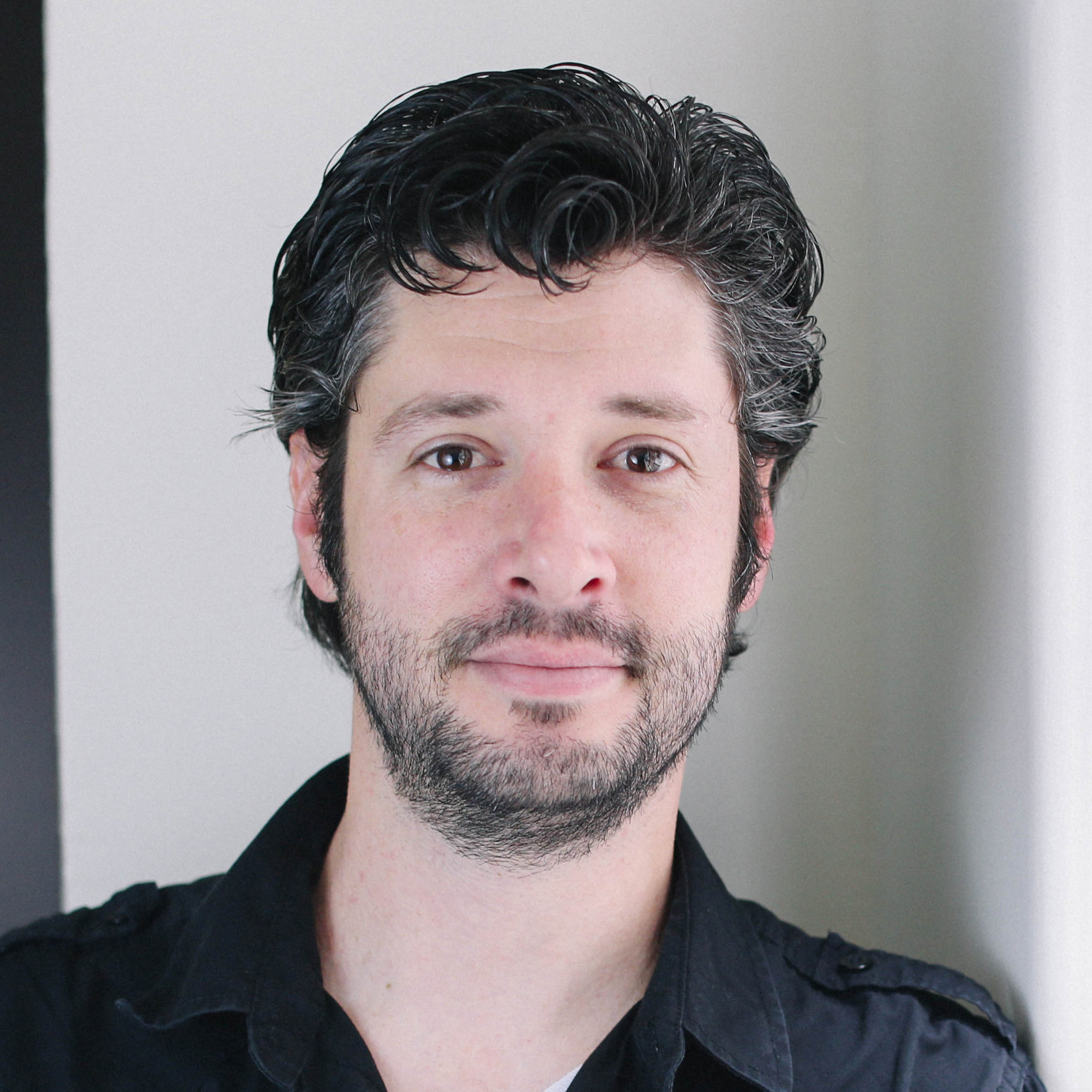Brian Boyer
Vice President of Product & People, Spirited Media
Brian Boyer is the vice president of product and people for Spirited Media, where
he is responsible for all facets of product, including design, conception,
execution and analysis. Before joining Spirited Media, he was senior supervising
visuals editor at NPR. Among the dozens of accolades for Brian’s team were
Online News Association, Society of News Design, Picture of the Year, DuPont,
Scripps and Emmy awards. Prior to NPR, Brian led the first team in the country
with the label “news applications” — now used liberally in the news business — at
the Chicago Tribune. His team was also one of the first newsroom development
teams to heavily open-source a large portion of their work, and to blog,
in great detail, about their methods. He was one of the first two programmers
to receive a Knight News Challenge-funded scholarship to study journalism
at Medill.

David Cohn
Senior Director , Advance Digital
In the last decade David Cohn has been at the forefront of innovation in journalism.
During his career he has worked on some of the first experiments in distributed
reporting, social journalism, citizen journalism and structured journalism.
Today, he is a senior director at Advance Digital’s Alpha Group, which does
in-house incubation for the media organization. This comes on the heels of
his time as an executive producer at AJ Plus, part of Al Jazeera’s research
and development team, leading efforts to turn a broadcast organization into
a digital operation. Before that he was the Chief Content Officer of
Circa, a startup redefining how news is consumed on the mobile phone
and one of the first organizations to experiment with atomized news structures
or “ object oriented journalism.” In academics, he has been a lecturer at
UC Berkeley’s journalism school and was a fellow at the University of Missouri’s
Journalism school at the Reynolds Journalism Institute. He serves on the
board of several journalism organizations including the Global Editors Network,
The San Francisco Public Press and the Online News Association.

Anthony Debarros
Washington Data News Editor, The Wall Street Journal
Anthony DeBarros is a longtime journalist who has specialized in data analysis, investigative
reporting, open-source programming, and product development. He is also the
author of Practical SQL: A Beginner’s Guide to Storytelling with Data, to
be published in 2018 by No Starch Press. Recently, DeBarros was the senior
vice president of content and product at Questex, a global B2B events and
publishing company. Their titles and events serve experts in niches ranging
from biotech and pharma to telecom and wireless to spas and nightclubs. Previously,
at DocumentCloud, a service of Investigative Reporters and Editors, he served
as director of product development via a grant from the Knight Foundation.
While there, DeBarros created pneumatic, a Python library for bulk-uploading
documents. He also fashioned a strategy for the platform’s long-term financial
stability. While with Gannett—at USA TODAY, Gannett Digital, and the Poughkeepsie
Journal—his specialty was data journalism and investigative reporting. Over
the years, his teams’ work has been recognized nationally by the Alfred I.
duPont-Columbia University Awards, Edward R. Murrow Awards, National Press
Foundation, and the Education Writers Association.

Jeremy Gillbert
Director of Strategic Initiatives, The Washington Post
Jeremy Gilbert is director of strategic initiatives at The Washington Post,
leading the newsroom to identify, create, and execute new digital storytelling
experiences. He collaborates with journalists, engineers, and advertising
department, to develop ways to effectively fulfill the Post's journalistic
mission while also delivering innovation for advertisers. In this role, Gilbert
has reimagined election night experiences, created The Post’s first virtual
reality stories, built a freelance network that changes how The Post covers
national stories and launched a new leadership vertical. Previously Gilbert
led digital strategy at National Geographic, taught journalism at Northwestern
University, worked at The Poynter Institute. Throughout his career he has
alternated between journalism and digital design.

John Ketchum
Managing Editor, AfroTech
John Ketchum is the Managing Editor of AfroTech. Before that he worked
as the Deputy Editor of SB Nation, on the social media team at CNN and
was at the Center for Public Integrity, an investigative news outlet based
in Washington, DC. While at CPI, Ketchum ran the center’s social media accounts
and was responsible for the organization’s overall audience engagement strategy.
Before coming to CPI, he worked as a producer for NPR’s Morning Edition.
Prior to NPR, Ketchum helped launch the Wealth and Poverty desk at Marketplace,
the public radio program covering business and the economy. He also served
as a 2016 WVU Reed College of Media Innovator-in-Residence.

Emily Ramshaw
Editor-in-Chief, The Texas Tribune
Emily Ramshaw is editor-in-chief of The Texas Tribune. Under her leadership, the
Tribune has won a Peabody Award, nine national Edward R. Murrow Awards, IRE's
Gannett Award for Innovation in Watchdog Journalism and eight honors from
the Online News Association. Before coming aboard as one of the Tribune’s
original reporters, Ramshaw spent six years at The Dallas Morning News, where
she broke national stories about sexual abuse inside Texas’ youth lock-ups,
reported from inside a West Texas polygamist compound, uncovered “fight clubs”
inside state institutions for the disabled and investigated a series of deadly
transplants where patients received rabies-tainted organs. The Texas APME
named Ramshaw its 2008 Star Reporter of the Year. Ramshaw serves on the board
of the Pulitzer Prize.

Elaine McMillion Sheldon
Documentary Filmmaker/Visual Journalist/Media Artist
Elaine McMillion Sheldon is a Peabody award-winning documentary filmmaker
based in West Virginia. Her work explores universal stories of identity,
upheaval, roots, survival, resilience, and hope. Sheldon is the director
of "Heroin(e)" a Netflix Original Documentary short that follows three
women fighting the opioid crisis in Huntington, West Virginia. "Heroin(e)"
was nominated for a 2018 Academy Award. In 2013, she released "Hollow,"
an interactive documentary that examines the future of rural America through
the eyes and voices of West Virginians. Hollow received a Peabody, Emmy
nomination and 3rd Prize in the World Press Photo Multimedia Awards. In
2016, Chicken & Egg Pictures awarded her with the inaugural "Breakthrough
Filmmaker" award. Sheldon was a 2013 Future of Storytelling Fellow, and
named one of the "25 New Faces of Independent Film" by Filmmaker Magazine
and one of "50 People Changing The South" by Southern Living Magazine.
She's a founding member of All Y'all Southern Documentary Collective. She
has been commissioned by Frontline PBS, PBS NewsHour, Center for Investigative
Reporting, New York Times Op-Docs, TEDWomen, People Magazine, Lifetime,
Field of Vision, Mashable, The Washington Post, and The Bitter Southerner.
She was recently named a 2018 USA Fellow by United States Artists.

Sarah Slobin
Visual Editor, Reuters
Sarah is currently the Visual Editor at Reuters. She previously worked
for Quartz where she was a things editor, the Wall Street Journal where she
was a visual editor, Fortune magazine where she was the infographics director,
and the New York Times where she was many things including editor of the
business graphics team. She’s interested in technology that disrupts technology,
finding the human part of data and how the center is defined by the edges.
Slobin was also the first WVU Reed College of Media Innovator-in-Residence.

Amy Webb
Professor, NYU Stern School of Business Founder and CEO, The Future Today Institute
Amy Webb is a quantitative futurist. She is a professor of strategic foresight
at the NYU Stern School of Business and the Founder of the Future Today Institute,
a leading future forecasting firm now in its second decade. Webb was named
to the Thinkers50 Radar list of the 30 management thinkers most likely to
shape the future of how organizations are managed and led and was shortlisted
for a 2017 Thinkers50 RADAR Award. Webb is a 2017-18 Delegate in the United
States-Japan Leadership Program. She was a 2014-15 Visiting Nieman Fellow
at Harvard University, where her research received a national Sigma Delta
Chi award. She was also a Delegate on the former U.S.-Russia Bilateral Presidential
Commission, where she worked on the future of technology, media and international
diplomacy. Her most recent book, The Signals Are Talking: Why Today’s Fringe
Is Tomorrow’s Mainstream (PublicAffairs/Hachette, December 2016), details
what technological changes are ahead, what impact they'll have on business
and society, and how you can forecast the future yourself. It was a Washington
Post Bestseller, selected as one of Fast Company’s Best Books of 2016, one
of Amazon’s best books of 2016 and won the Gold Axiom Award for business
books. Signals has been released in multiple international editions and has
been translated into a number of languages. Her new book new book—a manifesto
about artificial intelligence and implications of humans talking to machines—will
be published early 2019. Webb regularly contributes research, op-eds and
analysis to a number of publications, including the Harvard Business Review,
MIT Sloan Management Review, Los Angeles Times, Inc. Magazine, and elsewhere,
she is a guest on various broadcast shows (television and public radio) and
podcasts. She also consults on movie and television shows that are set in
the near and far future.

Derek Willis
News Applications Developer, ProPublica
Derek Willis is a news applications developer at ProPublica, focusing on politics
and elections. He previously worked as a developer and reporter at The New
York Times, a database editor at The Washington Post, and at the Center for
Public Integrity and Congressional Quarterly. He began his journalism career
at The Palm Beach Post. He is a co-founder of OpenElections, a project to
collect and publish election results from all 50 states.

Jim Brady
Founder and CEO, Spirited Media & Public Editor, ESPN
Jim Brady is the Founder and CEO of Spirited Media, which operates the local
news sites Billy Penn in Philadelphia, The Incline in Pittsburgh and Denverite
in Denver. He also currently serves as the public editor for ESPN. Before
launching Billy Penn, Jim has served as Executive Editor of washingtonpost.com,
Editor in Chief of Digital First Media, General Manager of TBD.com and head
of News & Sports for America Online. He is a Past President and current
board member of the Online News Association, and also serves on the boards
of the American Society for News Editors and the National Press Foundation.








